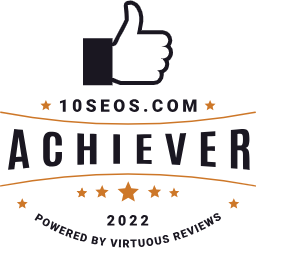Unveiling Advanced Strategies for Effective Keyword Research
Introduction
In the realm of digital marketing, few elements are as fundamental as keyword research. Crafting a comprehensive keyword strategy is akin to laying a strong foundation for a skyscraper; it forms the bedrock upon which your online presence is built. Yet, as search engine algorithms evolve and user behavior changes, the art of keyword research requires constant adaptation and innovation. In this article, I, as an expert consultant in the field of digital marketing, will delve into advanced keyword research methods that can propel your online efforts to new heights.
Advanced Keyword Research Methods
1. Semantic SEO Analysis
The foundation of effective keyword research used to revolve around exact-match keywords. However, today’s search engines are smarter and more intuitive than ever. They understand context, synonyms, and user intent. To stay ahead in the game, you need to embrace semantic SEO analysis.
Semantic SEO involves identifying and incorporating related terms and concepts into your content. Tools like Google’s NLP (Natural Language Processing) API can help you uncover latent semantic indexing (LSI) keywords and phrases. By weaving these into your content, you not only rank for your primary keyword but also capture the nuances of user intent, increasing the relevance and depth of your content.
2. Competitor Keyword Gap Analysis
One way to gain a competitive edge is by analyzing your competitors’ keyword strategies. Various tools, such as Ahrefs and SEMrush, allow you to perform competitor keyword gap analysis. This entails identifying keywords that your competitors rank for but you do not.
By infiltrating these keyword gaps, you can discover untapped opportunities within your niche. Moreover, you can reverse-engineer your competitors’ success, learning valuable insights about their content strategy and target audience.
3. User-Generated Content Mining
User-generated content, such as customer reviews, forum discussions, and social media comments, is a goldmine of keyword data. Dive into these user-generated spaces to uncover the language your audience uses when discussing your products or services. This unfiltered dialogue can reveal long-tail keywords and user intent, helping you create content that resonates deeply with your target audience.
4. Voice Search Optimization
The rise of voice-activated devices and virtual assistants has ushered in a new era of search behavior. People now ask questions conversationally, rather than typing in fragmented keywords. To adapt, and optimize your content for voice search.
Voice search optimization involves creating content that answers specific questions succinctly. FAQ sections, rich snippets, and structured data markup are essential tools in this endeavor. Additionally, focus on long-tail keywords and phrases that mimic natural language.
5. Seasonal and Trend Analysis
Keyword trends are not static; they ebb and flow with the seasons and current events. Leveraging Google Trends and other data analytics tools, monitor keyword trends in your industry. Identify seasonal patterns and anticipate spikes in search volume for specific topics.
By aligning your content with these trends, you can capture the attention of a larger audience during peak search periods. Be nimble in your approach, adjusting your content strategy to stay relevant and timely.
6. Social Media Keyword Mining
Social media platforms are treasure troves of user-generated content and discussions. Use social listening tools to monitor conversations related to your industry or niche. Pay attention to trending hashtags, keywords, and phrases that emerge in your target audience’s conversations.
By integrating these insights into your keyword strategy, you can create content that resonates with current discussions and trends, enhancing your online visibility and engagement.
7. Artificial Intelligence and Machine Learning
As technology advances, so do the capabilities of artificial intelligence (AI) and machine learning (ML). These tools can revolutionize your keyword research efforts. AI-powered platforms like Clearscope and MarketMuse can analyze top-ranking content for a given keyword and suggest relevant topics to include in your content.
Moreover, machine learning algorithms can predict emerging trends and recommend keywords with high growth potential. By harnessing the power of AI and ML, you can stay one step ahead in the ever-evolving world of SEO.
Conclusion
Keyword research is not a static process but an ever-evolving art form. To remain competitive in the digital landscape, you must continuously adapt and refine your keyword research methods. Embrace semantic SEO, tap into competitor insights, mine user-generated content, optimize for voice search, stay attuned to seasonal trends, monitor social media conversations, and harness the power of artificial intelligence and machine learning.
Incorporating these advanced keyword research strategies into your digital marketing arsenal will not only enhance your SEO efforts but also solidify your online presence as a thought leader in your industry. Remember, success in digital marketing hinges on your ability to understand and respond to the dynamic nature of search engines and user behavior. Stay agile, stay informed, and watch your online visibility soar.




